Lightworks is a freemium non-linear editing system (NLE) for editing and mastering digital video. It was an early developer of computer-based non-linear editing systems, and has been in development since 1989. Lightworks won a 2017 EMMY Award for being one of the first to create digital nonlinear editing software. The development of an open-source version was announced on April 11, 2010. However, no source code of the program has been released. In July 2020, a Lightworks product manager confirmed that they "Still hope to announce something in the future" about Lightworks' open source development.

Free music or libre music is music that, like free software, can freely be copied, distributed and modified for any purpose. Thus free music is either in the public domain or licensed under a free license by the artist or copyright holder themselves, often as a method of promotion. It does not mean that there should be no fee involved. The word free refers to freedom, not to price.
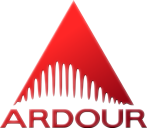
Ardour is a hard disk recorder and digital audio workstation application that runs on Linux, macOS, FreeBSD and Microsoft Windows. Its primary author is Paul Davis, who was also responsible for the JACK Audio Connection Kit. It is intended as a digital audio workstation suitable for professional use.

Groklaw is a website that covered legal news of interest to the free and open source software community. Started as a law blog on May 16, 2003, by paralegal Pamela Jones ("PJ"), it covered issues such as the SCO-Linux lawsuits, the EU antitrust case against Microsoft, and the standardization of Office Open XML.
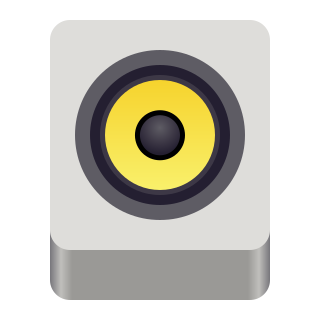
Rhythmbox is a free and open-source audio player software, tag editor and music organizer for digital audio files on Linux and Unix-like systems.
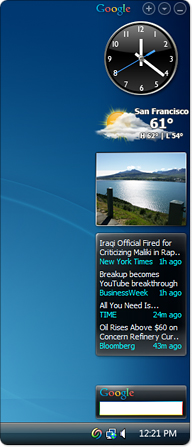
Google Desktop was a computer program with desktop search capabilities, created by Google for Linux, Apple Mac OS X, and Microsoft Windows systems. It allowed text searches of a user's email messages, computer files, music, photos, chats, Web pages viewed, and the ability to display "Google Gadgets" on the user's desktop in a Sidebar.

Amarok is a free and open-source music player, available for Unix-like, Windows, and macOS systems. Although Amarok is part of the KDE project, it is released independently of the central KDE Software Compilation release cycle. Amarok is released under the terms of the GPL-2.0-or-later.

Paint.net is a freeware general-purpose raster graphics editor program for Microsoft Windows, developed originally on .NET Framework, and as of version 4.3 .NET. Paint.net was originally created by Rick Brewster as a Washington State University student project, and has evolved from a simple replacement for the Microsoft Paint program into a program for editing mainly graphics, with support for plugins.
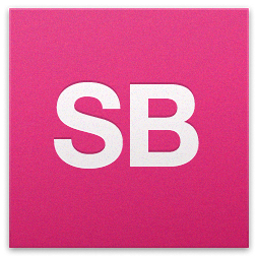
Songbird is a discontinued music player originally released in early 2006 with the stated mission "to incubate Songbird, the first Web player, to catalyze and champion a diverse, open Media Web".
Lisa DeBenedictis is an American singer, songwriter, and record producer, who releases her music via a number of outlets including Magnatune and iTunes. DeBenedictis dropped out of music school, but can play the piano, guitar and mandolin. Her music contains mainly guitar and piano, with synth, smart and frequently dark lyrics.
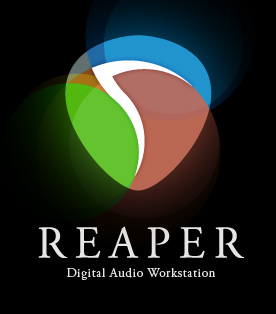
REAPER is a digital audio workstation and MIDI sequencer application created by Cockos. The current version is available for Microsoft Windows and macOS, as well as for Linux. REAPER acts as a host to most industry-standard plug-in formats and can import all commonly used media formats, including video. REAPER and its included plug-ins are available in 32-bit and 64-bit format.
The commercialization of copylefted works differs from proprietary works. The economic focus tends to be on the commercialization of other scarcities, and complimentary goods rather than the free works themselves. One way to make money with copylefted works is to sell consultancy and support to the users of the work. Generally, financial profit is expected to be much lower in a business model utilising copyleft works only than in a business using proprietary works. Another way is to use the copylefted work as a commodity tool or component to provide a service or product. Android phones, for example, include the Linux kernel, which is copylefted. Unlike business models which commercialize copylefted works only, businesses which deal with proprietary products can make money by exclusive sales, single and transferable ownership, and litigation rights over the work, although some view these methods as monopolistic and unethical, such as those in the Free Software Movement and the Free Culture Movement.
Amazon Music is a music streaming platform and online music store operated by Amazon. As of January 2020, the service had 55 million subscribers.
Digital rights management (DRM) is the management of legal access to digital content. Various tools or technological protection measures (TPM) like access control technologies, can restrict the use of proprietary hardware and copyrighted works. DRM technologies govern the use, modification and distribution of copyrighted works and of systems that enforce these policies within devices. DRM technologies include licensing agreements and encryption.
The Electronic Frontier Foundation (EFF) is an international non-profit digital rights group based in San Francisco, California. The foundation was formed on 10 July 1990 by John Gilmore, John Perry Barlow and Mitch Kapor to promote Internet civil liberties.
Jamendo is a Luxembourg-based music website and an open community of independent artists and music lovers. A subsidiary of Belgian company Llama Group, and Independent Management Entity (IME) since 2019.

Ubuntu One is an OpenID-based single sign-on service operated by Canonical Ltd. to allow users to log onto many Canonical-owned Web sites. Until April 2014, Ubuntu One was also a file hosting service and music store that allowed users to store data "in the cloud".

Nightingale is a discontinued free, open source audio player based on the Songbird media player source code. As such, Nightingale's engine is based on the Mozilla XULRunner with libraries such as the GStreamer media framework and libtag providing media tagging and playback support, amongst others.

Sublime Text is a shareware text and source code editor available for Windows, macOS, and Linux. It natively supports many programming languages and markup languages. Users can customize it with themes and expand its functionality with plugins, typically community-built and maintained under free-software licenses. To facilitate plugins, Sublime Text features a Python API. The editor utilizes minimal interface and contains features for programmers including configurable syntax highlighting, code folding, search-and-replace supporting regular-expressions, terminal output window, and more. It is proprietary software, but a free evaluation version is available.

Privacy Badger is a free and open-source browser extension for Google Chrome, Mozilla Firefox, Opera, and Firefox for Android created by the Electronic Frontier Foundation (EFF). Its purpose is to promote a balanced approach to internet privacy between consumers and content providers by blocking advertisements and tracking cookies that do not respect the Do Not Track setting in a user's web browser. A second purpose, served by free distribution, has been to encourage membership in and donation to the EFF.










